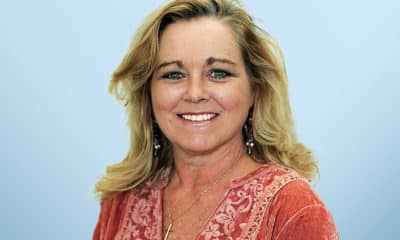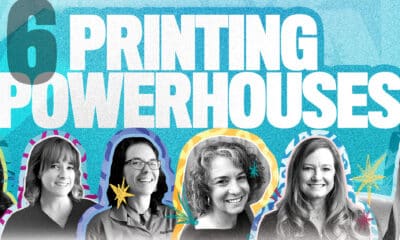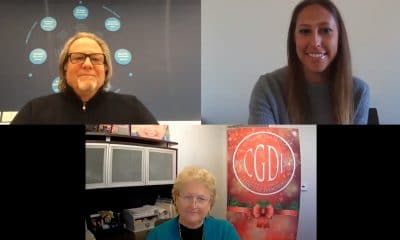 Savvy Walker
Owner | Signarama
Savvy Walker
Owner | Signarama
Fort Collins, Colorado SAVVY WALKER IS A rising leader in the wide-format printing industry, known for her entrepreneurial drive, operational excellence, and commitment to inclusive leadership. Without a traditional college degree, she built a successful career in hospitality and military contracting before purchasing Signarama Fort Collins at age 30. Since entering the industry in 2023, Savannah has transformed the shop into a million-dollar, women-owned business recognized for innovation, customer service, and community impact.
A hands-on owner and mentor, she actively supports small business growth, embraces sustainability, and champions diversity—proving that with vision and resilience, new voices can shape the future of wide-format printing.
So how did your experiences in hospitality and overseas contracting prepare you to lead a successful wide format print business?
My time in hospitality and military contracting taught me how to lead under pressure, adapt quickly, and prioritize people. Working overseas, I managed high-stakes logistics and diverse teams, often with very limited resources and no room for error.
That built my operational discipline, but it was my hospitality background where I really honed my customer service skills. Above all, people want to be heard. Whether it’s a one-night hotel guest or a small-business owner investing in their first sign, they want to feel seen, supported, and confident they’re in good hands.
That simple truth drives how we treat every customer who walks through our door.
The biggest surprise has been how universal those lessons are — clear communication, empathy, and care translate across industries, and that has been key in building trust and growing our business.
Could you give me a couple of examples of what good customer service looks like for your company and how you go the extra mile?
I’m from the South and I’m big on thank you cards. It might seem outdated, but we consistently send handwritten thank you cards to customers. Whether it’s a $100 job or a $50,000 job, we thank them for trusting us with their business.
Usually, it’s either me or my business partner, Kristi, who sign them. To me, that personal touch goes the extra mile because customers can get a sign from any company, but our customer service is what sets us apart.
We focus on following up, remembering personal details — like asking how someone’s daughter’s school is going. It’s that human connection that matters.
What advice would you give to women entering the wide-format industry who may not see themselves represented in leadership roles?
This is one of my favorite questions. I’m proud to run a woman-owned shop. Growing up in Georgia, my parents didn’t have opportunities to go to college, and at one point, I thought I needed a degree to succeed. But college wasn’t for me — I didn’t thrive there.
Traveling to Europe at 20—and living there for most of my twenties—changed me. I’ve always wanted to feel purpose, and I love connecting with people, but I never imagined I’d own a sign shop or lead in such a male-dominated industry.
To any woman stepping into this space, my advice is: don’t wait to be invited. If you’re the only woman in the room, that’s okay — pull up a chair and make sure there’s room for others, too.
Someone once told me women don’t knock each other’s crowns off — we straighten them. Supporting each other, celebrating wins, and leading with compassion changes the narrative. You don’t need a traditional background or title to lead. You just need the courage to show up, do the work, and bring others along. That’s how we’ll reshape this industry.
Advertisement

Online Exclusive
Do you get a lot of customers who are ordering a sign for the first time and don’t know what to expect? How do you handle that?
Yes, we get new customers often — some even come in with just a napkin sketch of what they want but no idea how to proceed. We walk them through every step because it can be overwhelming. We’re very clear about the process: we start with an estimate — which is free — then you approve a proof. Once that’s approved, we move into design for final checks and approvals. Then production begins, and finally the product is ready for pickup or installation.
We understand that people don’t know what they don’t know. We know a lot about signs, but customers often don’t. So, we guide them throughout the process, which makes future projects easier for them because they know what to expect.
What were the first strategic changes you made after taking over Signarama Fort Collins, and how did they contribute to rapid growth?
One of the first and most important changes was investing in team culture. I’ve worked in places with no team culture, and it was one of the worst experiences of my life. When I started here, I inherited a team and spent my first three weeks observing how the shop ran. They started each day with a brief 10-minute meeting, but some people weren’t seen all day because they were out on installs or in production.
We expanded that meeting to 30 to 45 minutes starting at 8:40 a.m. Some might see it as a waste of time, but for us, it’s essential. It gives the team space to review every job for the day and ensures everyone has a turn to speak. We even bought a large meeting table and chairs to make it a proper space. This meeting sets the tone for the day.
Another core value I introduced is cross-training — it’s non-negotiable in our shop. No one is allowed to say, “That’s not my job.” We operate as a team. Sometimes I’m on an install for a week if needed. Whatever it takes to get the job done, we do it together.
We also implemented a monthly review meeting, where we go over every job closed the previous month. It helps us identify what went wrong and how to improve, but it’s also a chance to celebrate wins. Sometimes you don’t see a job after installation, and this allows us to acknowledge good work and recognize individuals.
Operationally, we brought much of our production in-house, reducing outsourcing costs. We invested in equipment like a Colex router and a new Canon Colorado printer to boost efficiency without sacrificing quality.
None of this growth would have been possible without my incredible team. It took me a while to realize the team I inherited could keep us afloat but not push us forward. We made some tough decisions, saying goodbye to a few people and bringing in new talent. Now, our team is solid, and I thank them every day — I can’t run this shop without them.
What is it about your current team that makes you work so well together?
We have a thorough interview process. My business partner, Kristi, and I spend a lot of time getting to know candidates. I have to work with these people 8 to 10 hours a day, often more than with my own family, so getting along matters. We even take candidates out to dinner — twice — to get a real sense of who they are and how they’d handle tough situations.
One thing I’m very clear about is I don’t tolerate drama. I tell every person I hire that I don’t have the capacity for it. I need them to come to work and be professional. We also have an open-door policy — if anyone has a problem, they can come talk to me privately, and I’ll drop everything to help. I can’t fix problems I don’t know about, so communication is critical.
How do you balance innovation — like automation and eco-friendly materials — with maintaining a human-centered, community-focused business model?
I call myself an elder millennial, and while I’m excited about innovations like AI, I’m not ready to have AI answer my phones. One reason we’re thriving is that when someone calls, they get a real person who knows their project or can find out quickly. We care about getting it right.
During COVID, everything shifted so fast to remote and impersonal interactions, but people still want human connection. Our customers want to feel heard and seen, not just be a number in a system. That connection is foundational to our business.
AI is something I approach cautiously. I won’t give up the human connection — I want people to call and talk to us, not press a button to talk to a machine.
Advertisement
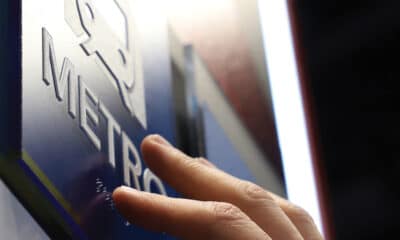
 Business Management1 month ago
Business Management1 month ago
 How To3 weeks ago
How To3 weeks ago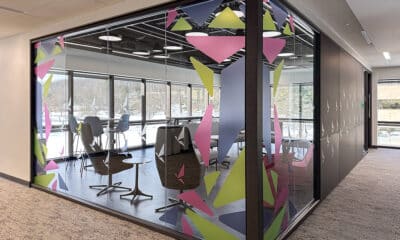
 Case Studies2 months ago
Case Studies2 months ago
 TIp Sheet2 weeks ago
TIp Sheet2 weeks ago
 TIp Sheet2 weeks ago
TIp Sheet2 weeks ago
 Sales Strategies: Kevin Baumgart1 week ago
Sales Strategies: Kevin Baumgart1 week ago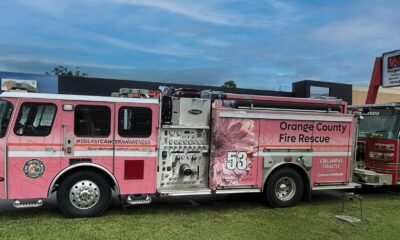
 Case Studies3 days ago
Case Studies3 days ago
 Headlines2 months ago
Headlines2 months ago


